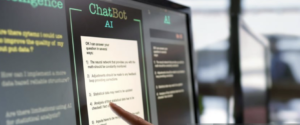Artificial intelligence (AI) has transformed numerous facets of our daily lives, playing a pivotal role in advancements such as self-driving cars and personalized product suggestions. Presently, AI is on the verge of reshaping the landscape of software development through the emergence of a novel generation of software agents. These intelligent entities are set to not only streamline repetitive tasks but also work collaboratively with human developers, ushering in a new era of more sophisticated and user-friendly software applications.
What are Software Agents?
Software agents are self-governing programs capable of executing tasks on behalf of users or other programs. They possess the ability to learn, adapt, and make decisions by leveraging information gathered from their surroundings. Although software agents have been in existence for decades, the integration of AI has substantially elevated their capabilities, rendering them more adaptable and potent than ever before.
AI-Powered Software Agents: The Driving Force of Automation
AI is empowering software agents to automate a diverse array of tasks that were previously deemed too intricate for machines. Notably, AI-powered agents can now:
- Generate Code:
- Analyze existing code to discern patterns and structures inherent in various programming languages. Utilize this knowledge to generate new code based on natural language descriptions or existing code snippets.
- Test and Debug Software:
- Analyze code to identify potential bugs and errors. Conduct software testing by simulating user interactions and monitoring system behavior.
- Perform Data Analysis and Reporting:
- Extract insights from extensive datasets, create reports, and recognize trends and patterns. Employ this information to enhance decision-making processes and optimize business operations.
AI-Enhanced Software Agents: Collaborative Partners for Human Developers
AI-powered software agents are not intended to replace human developers. Instead, their purpose is to collaborate with developers, augmenting their productivity and fostering creativity. Here are several ways in which AI agents will assist human developers:
- Coding Assistance:
- AI agents can offer real-time coding suggestions and identify potential issues as developers write code. This capability aids developers in crafting more efficient and error-free code.
- Design Optimization:
- AI agents have the capacity to analyze design mockups, pinpoint usability issues, and propose enhancements based on user behavior data and design principles.
- Creative Exploration:
- AI agents contribute to creative exploration by generating new ideas and concepts. This assistance helps developers overcome creative obstacles and venture into unexplored possibilities.
Shaping the Future: The Evolution of AI-Powered Software Agents
As AI technology undergoes continuous refinement, software agents are poised to achieve greater sophistication and capability. Their role in automating routine tasks, fostering collaboration between humans and machines, and fueling innovation within the software development sector is becoming increasingly pivotal.
The advent of AI-powered software agents marks a significant stride in the trajectory of software development. Through the automation of repetitive tasks, provision of real-time assistance, and stimulation of creativity, these intelligent entities are set to empower developers to craft software applications that are more innovative, user-friendly, and impactful.
Undoubtedly, the future of software development is intertwined with the ascent of AI-powered software agents. This collaborative integration is destined to reshape the landscape of technology, transforming the way we construct and engage with software applications.
The Rise of AI-Powered Software Agents: Ushering in a New Era


